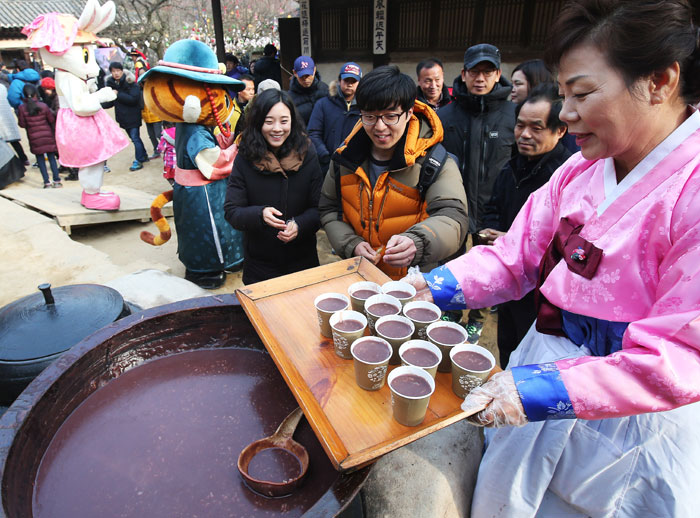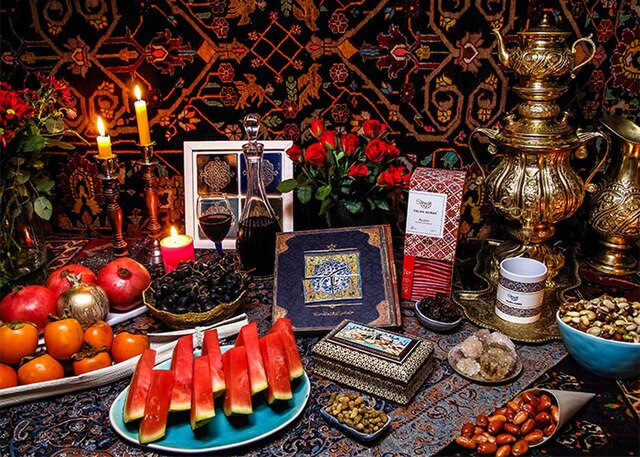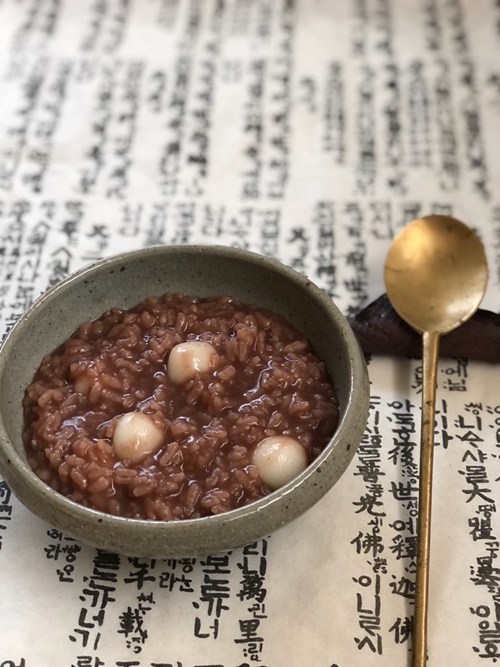- 한국어
- English
- 日本語
- 中文
- العربية
- Español
- Français
- Deutsch
- Pусский
- Tiếng Việt
- Indonesian
By Honorary Reporter Nasim Gerami from Iran
Winter solstice is when the sun reaches its lowest point in the sky, featuring a year's shortest period of daylight and longest stretch of darkness. As the symbolic death of the old year and birth of the new, this day has been celebrated since ancient days.
While separated by vast geographical distances and cultures, Dongji of Korea and Yalda Night of Iran share similarities. The former is observed on the winter solstice, which typically falls on Dec. 22. The traditional belief is that on this day, the forces of darkness and cold peak and those of light and warmth begin to return.
To mark this transition, Korea has had rituals and customs to induce good fortune and ward off evil spirits. A major tradition of Dongji is eating patjuk, or porridge made from red beans and glutinous rice. The dish's rich crimson color symbolizes the repulsion of evil spirits and the welcoming of good luck.
Believed to have restorative properties, the porridge is often shared among family and friends to raise unity and warmth during the cold winter. Eating it symbolizes the beginning of a new year and those who eat it grow older by a year. So Koreans call this day "Little Lunar New Year."
Beyond food, Dongji also sees veneration of ancestors and reflection. The tradition is to visit the graves of ancestors to pay respects and offer food and drink.

A woman offers patjuk to people at a cultural event (Korea.net DB)
The festival has deep Zoroastrian roots and is believed to have originated over 3,000 years ago. Its philosophy centers around celebrating light, knowledge and enduring power of hope.
The centerpiece of Yalda Night is the gathering of family and friends around a korsi, a traditional table with a heater underneath that provides warmth and comfort as people share stories, recite poetry and enjoy traditional delicacies. Activities include staying up past midnight, talking and storytelling, and reading poems.
The most important dishes of Yalda Night are pomegranate, watermelon and ajil, a mix of dried fruits, nuts and seeds. These fruits, rich in color and bursting with life, represent the sun's return and nature's renewal.

Yalda Night table (Wikipedia)
Dongji and Yalda Night share striking similarities. Both celebrate the winter solstice, focusing on the triumph of light over darkness, renewal of life and strengthening of community bonds. They also emphasize family gatherings and the sharing of specific foods with the symbolic use of vibrant red colors representing vitality and hope.
The two events allow families and communities to come together, share food, tell stories and celebrate their bonds.

Patjuk on Dongji (Korea.net DB)
msjeon22@korea.kr
*This article is written by a Korea.net Honorary Reporter. Our group of Honorary Reporters are from all around the world, and they share with Korea.net their love and passion for all things Korean.